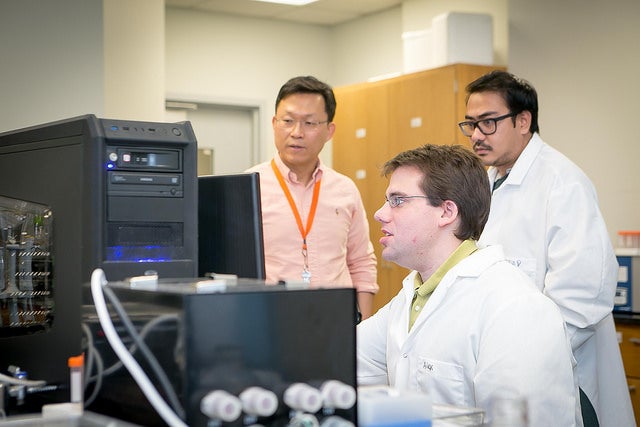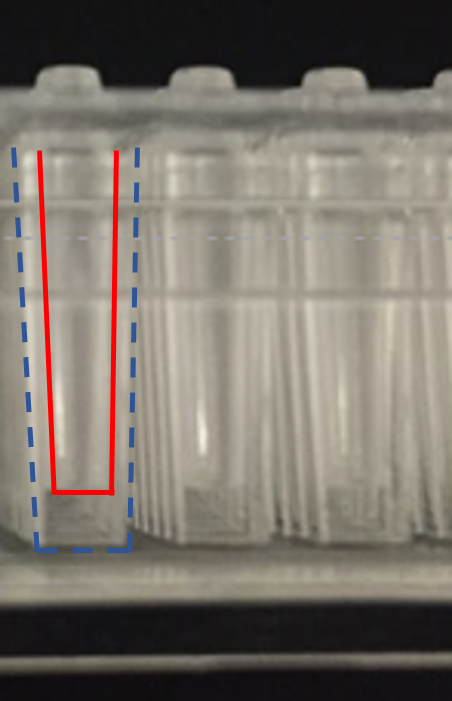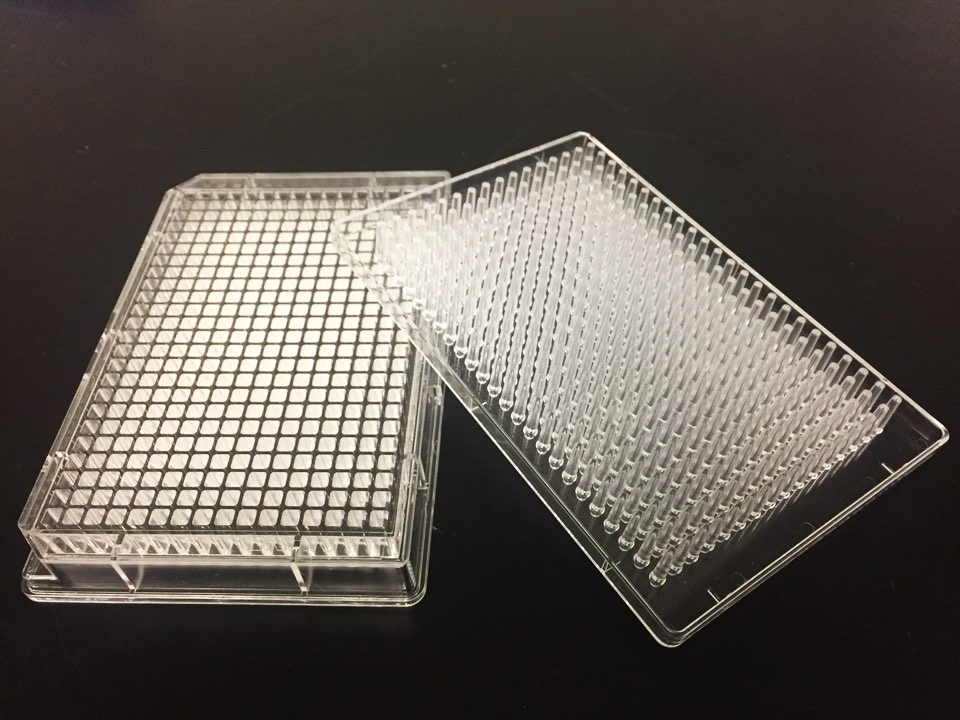Dr. Moo-Yeal Lee, Stage Two Winner in EPA Toxicity Testing Challenge
Dr. Moo-Yeal Lee, Assistant Professor of Chemical and Biomedical Engineering, at the Washkewicz College of Engineering, is selected as one of five winners of the EPA Transform Toxicity Testing Challenge.
 Through several research projects at Cleveland State, Dr. Lee has been developing a "microarray 3D bioprinting" technology, which is a robotic, high-precision, cell printing technology manifested on a 384-pillar plate with sidewalls (384PillarPlate(R)). In an effort to generate predictive toxicity/efficacy data and to serve the global in vitro cell-based testing market, Dr. Lee and his group has focused on developing the 384PillarPlate(R), bioprinted human tissues on the 384PillarPlate(R) (TissuePlate(R)), and related toxicity assessment assays.
Through several research projects at Cleveland State, Dr. Lee has been developing a "microarray 3D bioprinting" technology, which is a robotic, high-precision, cell printing technology manifested on a 384-pillar plate with sidewalls (384PillarPlate(R)). In an effort to generate predictive toxicity/efficacy data and to serve the global in vitro cell-based testing market, Dr. Lee and his group has focused on developing the 384PillarPlate(R), bioprinted human tissues on the 384PillarPlate(R) (TissuePlate(R)), and related toxicity assessment assays.
The technology is best suited for creating miniaturized multicellular tissue structures and multiplexed cell-based assays for drug discovery. The 384PillarPlate(R) platform is a robust and flexible system for high-throughput screening of compound libraries and enables retrofitting of current cell-based toxicity tests to provide metabolic competence. View 384 Pillar-Well Plate below.


Dr. Lee is in the process of establishing a startup company (temporarily named "Bioprinting Laboratories, Inc.") by licensing three patent applications he filed through Cleveland State University.
Learn more about Professor Lee and his research.